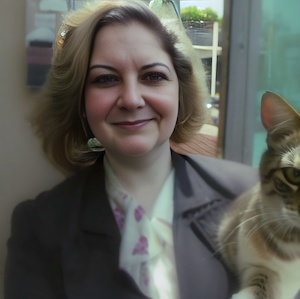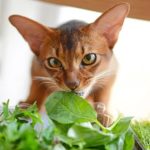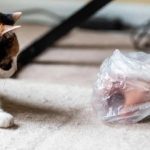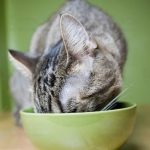Do you ever hear your cat meowing after they finish eating? While it may seem like a simple and harmless behavior, this vocalization can sometimes be cause for concern for cat owners who are unsure of what their pet is trying to communicate.
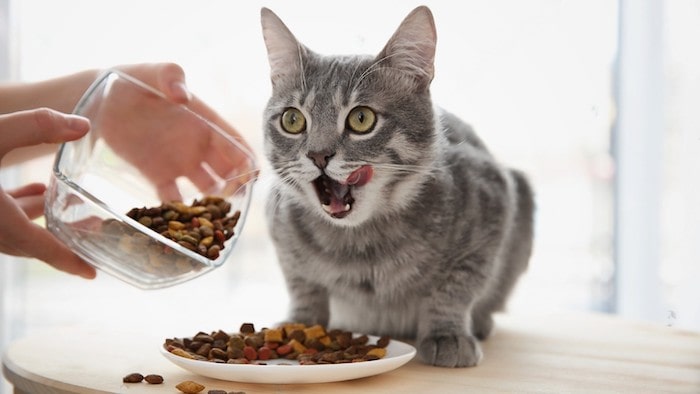
In this article, we will explore the reasons why cats meow after eating and provide insight into this common feline behavior. Whether you’re an experienced cat owner or just getting started in the world of cats and kittens, we’ll help you gain a better understanding of your furry friend’s language so that you can improve communication between yourself and your beloved pet.
So, why do cats meow after eating? Let’s investigate further!
Contents
Is It Normal For Cats To Meow After Eating
Yes, it is normal for cats to meow after eating. In fact, it is a common behavior in many cats, and is often seen as a way for them to communicate their needs and wants. As per ASPCA“Even if your cat has a history of meowing for food, you should still have her checked by your veterinarian.“
Whether it is due to residual hunger stimulation, attention seeking, or communication of satisfaction, meowing after eating is a natural behavior for many cats.
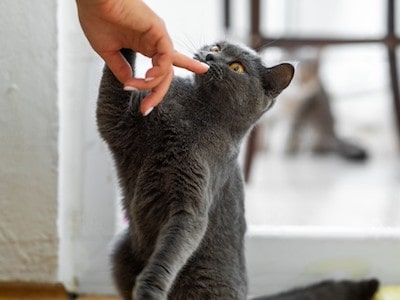
However, it is important to observe your cat’s behavior and vocalizations to ensure that there are no underlying health issues causing excessive meowing after eating.
If you suspect that your cat’s meowing may be due to a health problem, it is always best to seek veterinary attention to rule out any underlying health concerns.
Reasons Cats Meow After Eating
There are several reasons why cats may meow after eating, and they can be broadly classified into different categories. Few of them are mentioned below:
- Hunger Stimulation: Cats are wired to associate meowing with hunger, and even after they have eaten, the meowing may persist as a residual hunger stimulation. This is because the cat’s body continues to associate meowing with the need for food.
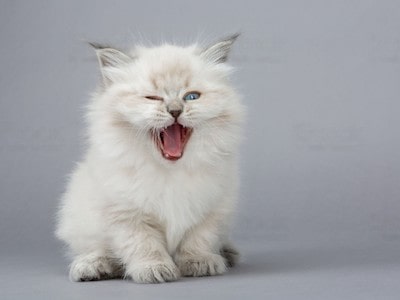
- Attention Seeking: Cats may also meow after eating as a way to seek attention from their owners. If a cat associates meowing with receiving attention or affection, it may become a habit even after eating. By meowing, a cat may be trying to communicate that they want to be petted, cuddled, or played with.
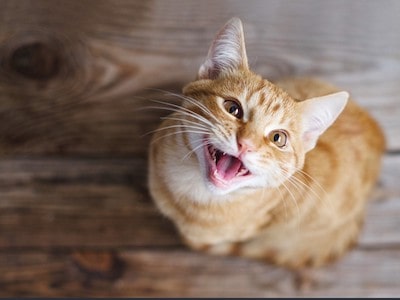
- Communication of Satisfaction or Desire for More Food: If a cat is content and satisfied with their meal, they may meow to express their happiness. On the other hand, if they want more food, they may also meow to signal their desire.
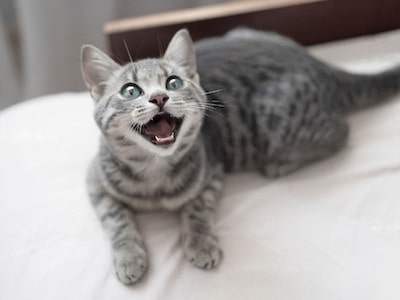
It’s important to observe your cat’s behavior and vocalizations to better understand their needs and motivations. By understanding why cats meow after eating, cat owners can provide better care and attention to their furry friends.
However, it is also important to keep an eye out for any excessive meowing after eating, as this may indicate a more serious health issue. If you suspect that your cat’s meowing may be due to a health problem, it is always best to seek veterinary attention to rule out any underlying health concerns.
FAQs
What should I do if my cat is meowing excessively after eating?
If your cat is meowing excessively after eating, it is important to observe their behavior and seek veterinary attention if necessary. Excessive meowing may indicate a more serious health issue, such as digestive tract inflammation or infection.
Is there a way to stop my cat from meowing after eating?
It is not possible to completely stop a cat from meowing after eating, as it is a normal behavior for many cats. According to resources.bestfriends ”Cats communicate through a variety of vocalizations — meowing, purring, chirping, and hissing, among others. They display their unique personalities through these vocalizations, a characteristic most people find endearing.”
However, by understanding the reasons behind their meowing and providing the necessary attention, care, and affection, you can help reduce the frequency of their meowing.
Can meowing after eating be a sign of a health problem?
Yes, meowing after eating may be a sign of a health problem, such as digestive tract inflammation or infection. If you suspect that your cat’s meowing may be due to a health problem, it is always best to seek veterinary attention to rule out any underlying health concerns.
Is it normal for cats to meow after eating?
Yes, it is normal for cats to meow after eating. Meowing after eating is a common behavior in many cats and is often seen as a way for them to communicate their needs and wants.
Conclusion
In conclusion, meowing after eating is a normal behavior for many cats. It can be due to hunger stimulation, attention seeking, or the communication of satisfaction or desire for more food.
While it is not possible to completely stop a cat from meowing after eating, understanding the reasons behind their behavior and providing the necessary attention, care, and affection can help reduce the frequency of their meowing.
However, if your cat is meowing excessively or showing other symptoms, it is important to seek veterinary attention to rule out any underlying health concerns. By staying attentive to your cat’s behavior and vocalizations, you can better understand their needs and ensure their well-being.
Charlene Pare is the founder of Cat Likes Best. She manages and strategizes the content published on this website. When she isn’t working, she enjoys exploring the city around with her Ameican Shorthair kitty–Moli. Being a technocrat and an avid cat lover, she also writes on pet tech products and some of the featured articles.

